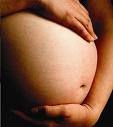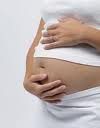What happens during pregnancy?
The nine months of pregnancy, from conception to birth are an exciting time of change.
As the embryo grows and develops into a baby, many changes are also taking place in the mother’s body.
Trimesters
Pregnancy is often divided into trimesters or thirds. The first 12 weeks are the first trimester, weeks 13 to 28 the second and weeks 29 to the time of birth the third.
Here we explain the changes that take place in the mother and the baby over each trimester of pregnancy.
Early signs of pregnancy
Apart from a missed period, some women notice changes such as breast tenderness or frequency of urination. Around three quarters of women experience nausea in early pregnancy and around half also vomit. Rising pregnancy hormones are the cause. Some women experience unusual tiredness; others find they do not like eating foods they usually enjoy.
How our mums felt:
Mum1- I felt nauseas and was sick, all the way through my pregnancy. It was bad at the start, eased up a little half way through, then came on again at the end! I also felt very dizzy at the start of my pregnancy.’
Mum2- didn’t really feel anything straight away, but by the time I’d missed my period I kind of knew I was pregnant. It was a big shock, a happy shock, you don’t really ever think it will happen to you!
I also felt nauseas all the way through, but was only sick a few times- usually when I brushed my teeth- it made me gag every day!
Changes during pregnancy
First trimester (0-12 weeks)
The uterus is low in the pelvis and there is no visible bump, giving women a chance to prepare psychologically for pregnancy. The first trimester is a time of rapid hormonal changes, which cause various physical changes. Many women feel very tired. The breasts may feel tingly, uncomfortable or full. It is important to wear a supportive bra. The area surrounding the nipple, the areola, may look darker.
Increasing levels of pregnancy hormones in the circulation can cause nausea (commonly called “morning sickness”, although it can happen at any time of day). Eating small, regular meals can help to reduce nausea. Women who cannot keep food or fluid down because of vomiting should see their doctor. Some women experience an odd metallic taste or stop enjoying certain things such as coffee or spicy foods.
Some women experience constipation, which may be prevented or relieved by drinking enough and eating a healthy diet, with plenty of fibre. The amount of fluid in the mother’s circulation increases because her blood is also circulating to the developing baby via the placenta. Some women may feel a little dizzy or be more likely to faint.
Folic acid supplements are recommended for women trying to conceive and during the first trimester of pregnancy. This is the time that the baby’s brain and nervous system are developing. Folic acid has been shown to reduce the chance of a baby being born with problems known as neural tube defects, such as spina bifida.
The first trimester is the most important time for women to avoid taking any medications that could interfere with the baby’s development. Although the occasional glass of wine is unlikely to cause serious harm, heavy consumption of alcohol should be avoided.
How our mums felt:
Mum1- It was a pretty scary time for me as I’d had a miscarriage only a few months previously, so I was really scared it would happen again. I did bleed a little, but an early scan showed everything was fine, so I then became really excited.’
Mum2- I felt fine, the occasional sickness but in the afternoons not mornings. I felt really scared and really worried. The funniest thing is, I was scared of telling my parents! I was 40, not married (but I have a partner) and far from home, it was all a bit overwhelming. I was worried about work too -telling them was a big thing!’
Baby
The first trimester is a period of rapid growth and development.
The baby develops all its organs and body systems. The heart starts to beat by the fifth week. This is followed by the formation of the gut, the buds of arms and legs and the beginnings of eyes and ears. The embryo has a curled shape initially and the length is approximately 20mm by six weeks.
By nine weeks, most of the organs have formed. By 12 weeks the baby is approximately 100mm long, the back is straightening and the limbs are growing. Nutrients from the mother are transferred from the placenta to the baby via the umbilical cord. Waste products from the baby are returned to the mother’s circulation to be removed.
Second trimester (13-28 weeks)
Mother
In the second trimester many women find that any nausea lessens and they feel more energetic.
Some may notice changes in their hair or skin and some develop spots or rashes.
As the abdomen and breasts grow, stretch marks may appear. These fade after the baby is born although they do not disappear altogether. It is quite common to develop a vertical, pigmented line on the skin of the abdomen below the belly button, which fades later.
Heartburn ( Dyspepsia ) is a common symptom and is often worse when lying down.
By 20 weeks most mothers start to feel the first sensations or flutterings of the baby moving. The movements become much more vigorous and obvious as the baby increases in size and strength.
How our mums felt:
Mum1- i was much more relaxed in my second trimester and began to get really excited.
I then developed Carpal tunnel syndrome which was really painful. I spent more time thinking about that than the other symptoms. I was still being sick too.
Mum2- I felt fine in my second trimester- skipped along quite happily really. I had lots of energy and no problems at all apart from my developing big bump!
Baby
In the second trimester, the baby’s sex organs develop and other organs mature. The baby starts to make movements and drinks the surrounding amniotic fluid. The kidneys start to work and the baby passes small amounts of urine, adding to the amniotic fluid. The amniotic fluid is continually cleaned and replaced. The baby develops a cycle of sleep and wakefulness and can hear sounds from around 20 weeks.
Third trimester (29-40 weeks)
In the third trimester, the increasing size of the baby and uterus become more physically tiring for the mother. Some women have difficulty in finding comfortable positions to sleep in and some describe vivid dreams. It is normal to start focusing psychologically on the birth to come.
From around 36 weeks, the baby’s head starts to drop down into the pelvis. This can cause pressure on the bladder, increasing the sensation of needing to pass urine.
Tightenings of the uterus, known as Braxton Hicks contractions, become stronger in the third trimester. They can be thought of as “practice contractions”. Although they can be uncomfortable, they should not be painful.
How our mums felt:
Mum1- My carpal tunnel got worse- really painful, it affected my daily life and was so horrible. My sickness got worse too and I had high blood pressure so had to keep going to the hospital! People often say to me that I had a bad pregnancy, but I don’t see it that way, I felt finein general really, just lots of side effects!’
Mum2- i was really tired and the pains I had in my groin were awful. It was a never ending pain from the pressure of my baby! It was agony, sometimes so bad I could hardly walk! Right at the end I had Pre eclampsia.
Baby
The baby’s lungs mature throughout the third trimester.
The baby makes breathing movements, even though the lungs do not expand and work properly until birth.
Fat stores are laid down in preparation for birth.
The baby grows fine hair, fingernails and teeth, and the eyes open and close.
Weight gain in pregnancy

Women gain around 9 to 15kg (1st 6lb to 2st 5lb) during the course of a pregnancy.
The increase in weight is made up of the developing baby, placenta and amniotic fluid; the growth of the uterus and breasts; and the increased amounts of blood in the circulation, water retention and fat stores.
The baby accounts for most of the increase in weight. Most women eat a little more than usual but it is not necessary to “eat for two”.
Our mums:
Mum1- I put on around 2.5 stone. they say that breast feeding reduces your weight quickly- thats a myth. I couldnt shift it at all. It was only when I stopped feeding at 6 months, that I lost the weight.
Mum2- I put on around 8 kilos. Breast feeding makes you hungry- but if you eat the right foods you should be o.k. I’m now back to my pre- pregnancy weight, but its hard to shift it!
Emotional changes
It is normal for women to feel a great variety and depth of emotions throughout the experience of pregnancy and childbirth.
In the first trimester and immediately after birth, there are fluctuations in hormone levels that contribute to mood swings.
Women can feel anxious, tearful or joyful in turn. Personal circumstances also influence emotions. Changing emotions are particularly likely in the few days after birth and some women may feel very low – the Baby Blues (post natal depression).
If these low feelings become intense or prolonged it is important to talk to either your midwife, health visitor or GP.
How our mums felt:
Mum1- I felt a bit emotional, but I havent really changed since giving birth- I’m still the same person!
Mum2- I was up and down, but nothing major until my third trimester when anything could set me off crying! I’m still the same person now as I was before giving birth. I dont feel any different emotionally now than I did back then.
*We have named our mums 1&2 as they wanted to remain anonymous.












